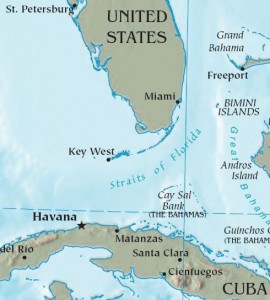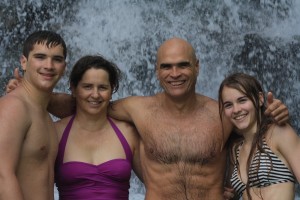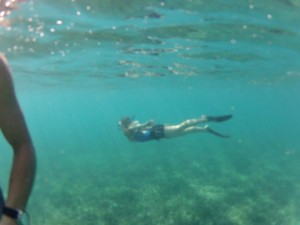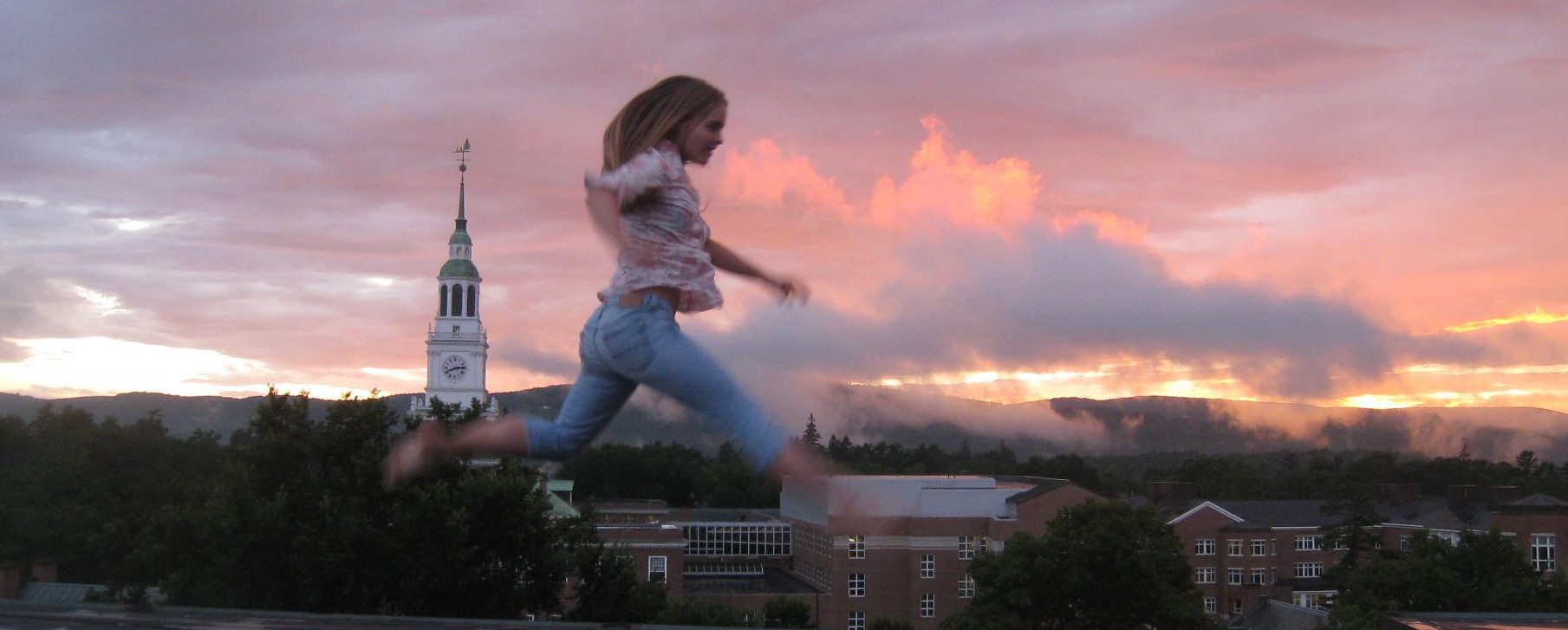MIAMI, A VERSION OF CUBA WITH COCA COLA proved to be the final settling place for Patty’s family. Having been at last reunited with the rest of the family, including the grandparents, the family was now home, in a new world that sounded, felt, and even smelled familiar. It was as if La Habana was transplanted over the Florida Straits to Miami. Families around hers spoke Spanish, cooked rice the same way, and had similar stories of exile and migration. They all shared common traits and visions of the world. They had carried their idiosyncrasies and customs on their back as they left an impoverished and ailing Cuba that had deprived them of things the rest of the world took for granted and established themselves in a country that differed so much from their homeland. Cuba thus remained a nostalgic memory yet, not a simple one given the many hardships that people in the island experience, and continue to experience under Castro’s regime. Something so simple as buying a soda was turned into something political, something to be scrutinized. Yet, the soda means more than a simple liquid: it stands for a way of living, capitalism, a symbol of cultural influence from the United States, and above all, something that “real” Cubans had to stay away from.
Yet, the soda means more than a simple liquid: it stands for a way of living, capitalism, a symbol of cultural influence from the United States, and above all, something that “real” Cubans had to stay away from.
Patty’s family experienced these small interventions of the state in their daily lives, which to a great extent drove them our of the island. Just like other Cuban migratory waves, her family set out north to have a more promising future. For that reason, arriving in Miami meant a sort of liberation— a new beginning for people in a land that promised to never mess with their longed liberties. Even though it took them a while to get to Miami, Patty’s family, arrived to the city after their long journey up in Canada and in Texas looked for some solace in the familiarity. After all, Miami has the highest concentration of Cuban migrants in the United States, and their culture is well rooted in the development of the city as a multicultural hub. Her family would join the community, but in their own terms.
Patty recalls at the time they moved out of Cuba to the United States that some characteristics that made her family was distinct. First, her family did not partake of any religious activities and had no strict rituals they had to follow. But even long before they left Cuba, they had nothing to do with organized religion. Patty thinks that this was due to the fact that when the powerful revolutionary government of Fidel Castro came into power, it stripped the church of its power over people in an attempt to stamp out the power of the ecclesiastic elites. As the church cultural influence over the people waned over time, families started to become more secular, less involved with religion. Even as religious practices were tolerated once again, people were less keen to return to the faith; an irreparable change had taken place. Even in Miami, with all the liberty, the family still held on to its very own set of values.
Secondly, spearheaded by her dad, the family was to focus more on things beyond the material. This vision for the family was at odds with other families who anxiously wanted to move up in society through the accumulation of luxuries and the establishment of social networks that gave them certain status. But her family was to be different, humble and proud of their roots. For example, no gifts were to ever be exchanged during Christmas. This idea was in line with Patty’s dad’s wishes: to not step into crowded malls and boutiques looking for gifts that would be used only once, or that didn’t really communicated the spirit of the seasons.  Instead, the holidays in Miami were now an opportunity to get away, have carefully planned vacations anywhere outside of Miami to avoid the wide-spread frenzy to buy and give gifts to which many families around her family succumbed to. Even as she was young and couldn’t understand the scope of such particular practice, Patty recalls feeling a bit different from her classmates as they asked her what her parents had gotten her for the holidays. But it wasn’t a great deal. She would often avoid the question or refer to gifts that other people, not her parents, would give her.
Instead, the holidays in Miami were now an opportunity to get away, have carefully planned vacations anywhere outside of Miami to avoid the wide-spread frenzy to buy and give gifts to which many families around her family succumbed to. Even as she was young and couldn’t understand the scope of such particular practice, Patty recalls feeling a bit different from her classmates as they asked her what her parents had gotten her for the holidays. But it wasn’t a great deal. She would often avoid the question or refer to gifts that other people, not her parents, would give her.
 In fact, this family custom created a sense of humility and practicality that Patty thinks sits at the core of her own life. Thinking that the best thing to do over the holidays is to strengthen the relationships with those we love through hand-made cards, experiences and memories, Patty doesn’t shy away from having her own traditions. Even if they involve the torture of some cruise in the Caribbean, a road trip across California, or a simple night out with her close friends from high school.
In fact, this family custom created a sense of humility and practicality that Patty thinks sits at the core of her own life. Thinking that the best thing to do over the holidays is to strengthen the relationships with those we love through hand-made cards, experiences and memories, Patty doesn’t shy away from having her own traditions. Even if they involve the torture of some cruise in the Caribbean, a road trip across California, or a simple night out with her close friends from high school.
Even without ever leaving Miami and her neighborhood, Patty has found a lot of activities that complement her easy-going, free-spirited, and adventurous personality. She often snorkels near the bay with her friends, practices yoga and meditation, and even takes salsa classes to live and active and interesting lifestyle, one that has been facilitated by her family moving out of Cuba.
